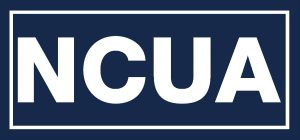There are many perks to being a homeowner. When you buy a home, for example, the down payment and monthly mortgage payments you make help to grow your equity.
Many people take advantage of their home equity by taking out either a home equity line of credit (HELOC) or home equity loan to help them pay for something they need or want. Because these loans use the equity in your home as collateral, they usually have lower interest rates than other borrowing options, like personal loans.
A significant benefit of HELOCs and home equity loans to consider is the tax deductions. It’s important to keep in mind that the tax code changes every year, and something that is tax-deductible this year may not be the next. Be sure to consult with a tax professional before taking any deductions.
Are Home Equity Loans Tax Deductible?
Home equity loans are popular financing options because they allow you to use the equity you have in your home as collateral. They often have lower interest rates than other loans.
The interest you pay on a home equity loan is tax-deductible, but there are some important limitations to consider. Interest on these loans used to be fully tax-deductible, but some changes were implemented with the passage of the Tax Cuts and Jobs Act (TCJA) in 2017.
According to the new rules, if you are married and file jointly, you can deduct up to $750,000 of home equity loan interest. If you are an individual filer, you are limited to $375,000. These limits won’t affect those who borrow relatively small amounts. For many borrowers, taking the standard deduction will be better than itemizing.
It’s important to point out that you can only take a home equity loan tax deduction if you are using the money you borrowed to purchase a home, build a home, or renovate your home. You would not be able to deduct the interest, for example, if you took out a home equity loan to pay for a wedding, consolidate debt, buy new appliances, or something else.
Another important thing to consider for home improvements is that you can only deduct the interest on your home equity loan if you are making “substantial renovations.” This means cosmetic upgrades like painting rooms or landscaping would not qualify. Repairs to maintain a home – such as fixing a leaky roof or HVAC system – would also not qualify.
Can You Deduct HELOC Interest?
A HELOC is another popular way to tap into the equity you have in your home. With these loans, you have a line of credit that you can draw from as needed.
If you need to periodically take out some money to pay for a home remodeling project, for example, a HELOC allows you to only borrow the money you need, when you need it. You can replenish your available credit by repaying the money you borrowed.
HELOCs also have variable interest rates. The rates must be variable because you can borrow at any time during the draw period, which may be up to 10 years. The rate must be current whether you are borrowing in your first year of the draw period or the tenth.
The IRS rules for a HELOC tax deduction are essentially the same as those for home equity loans. The amount of interest you can deduct is the same, and you must be using the money you borrow for the same purposes. The money must be used to either buy a home, build a home, or renovate your home.
Similar to the rules for home renovations with home equity loans, to deduct the interest on your taxes, you must use the money to make “substantial renovations.” Minor cosmetic upgrades and routine maintenance don’t qualify.
Is Home Equity Loan Interest Tax Deductible for Rental Property?
Rental property owners get to enjoy many benefits at tax time. Just a few things they can deduct include:
- The cost of repairs
- Landlord insurance
- Home office expenses
- Certain travel expenses
- Legal or professional services
Another perk of being a rental property owner is you can deduct the cost of the rental property itself over time. Commonly referred to as “depreciation” by accountants, you can deduct a portion of the property’s purchase price each year until the full amount has been written off.
Another expense that rental property owners can deduct from their taxes is home equity loan interest. Similar to deducting interest for personal residences, a home equity loan must be used to renovate the property. It can’t be used for routine maintenance or minor cosmetic improvements.
Examples of things that may qualify for interest deductions in a rental property include:
- Installing a new roof
- Paving a parking lot
- Remodeling older units
- Installing new flooring
- Installing new energy-efficient windows
The important distinction is that the money must be used to renovate instead of maintain. Installing a new roof, for example, is substantially different from repairing a leaky roof.
Home Equity Loans and HELOCs with TEG Federal Credit Union
If you have a home renovation project that you are ready to take on, TEG Federal Credit Union offers both home equity loans and HELOCs on primary residences, which are great borrowing options.
Our home equity loan has a fixed interest rate, and you may be able to borrow between $25,000 and $250,000. Repayment terms of up to 15 years are available. There are also no closing costs so you can concentrate on completing your project instead of having to worry about an extra expense.
Our HELOC has a variable rate, and credit lines of between $25,000 and $250,000 are available. The draw period may be up to 10 years, and the repayment period may be up to 15 years. Our HELOC also does not have any closing costs.
Check out the following link to learn more about our home equity loans and HELOCs and how to get started.












